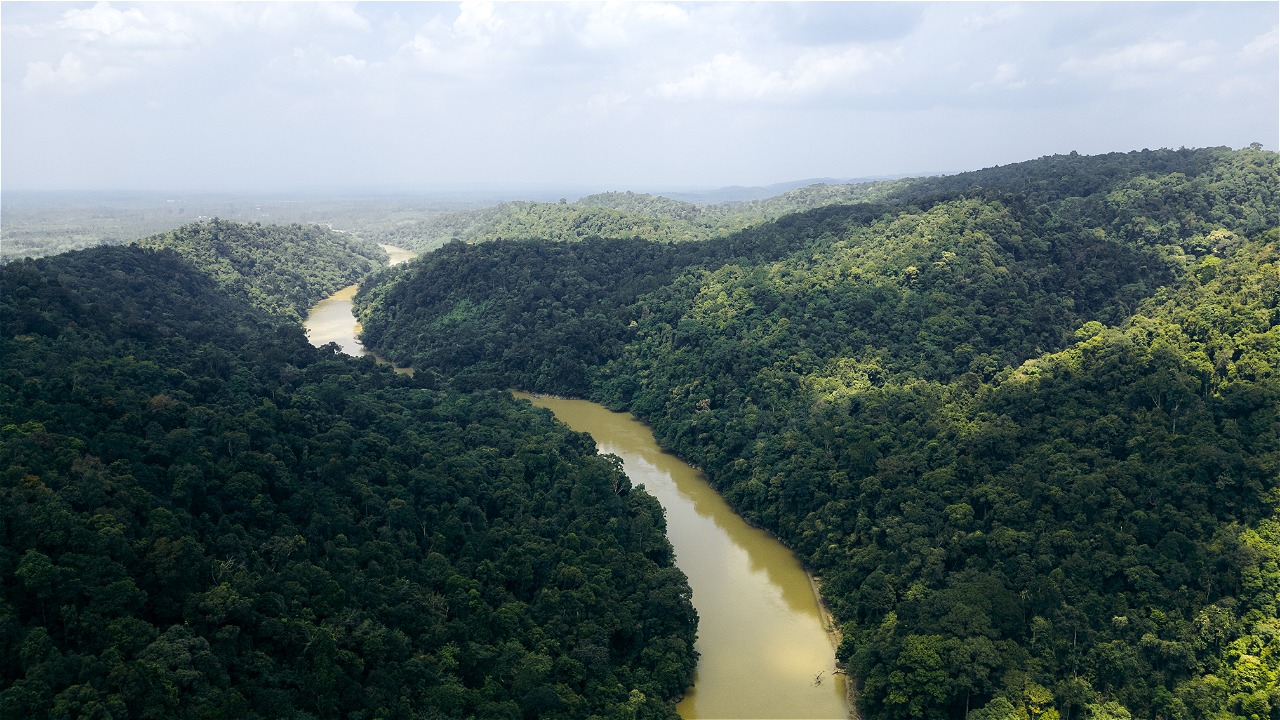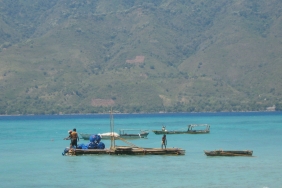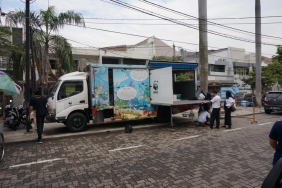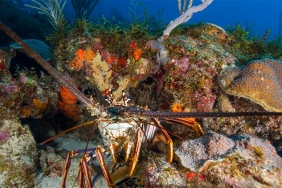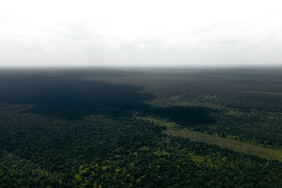THE JAKARTA POST'S OPINION EDITORIAL: SAVIORS OF SEAFOOD, OCEANS AND THE EARTH
by: Wawan Ridwan, Jakarta | Opinion | Wed, 05/16/2012 8:19 AM | The Jakarta Post link: here
On Tuesday, the World Wildlife Fund (WWF), a global conservation organization, launched “The Living Planet Report 2012”, a biennial report on the state of the Earth. One of the issues raised in the report is the declining health of the world’s oceans because of overexploitation, destructive fishing, greenhouse gas emissions and pollution.
The world’s oceans provide critical services for billions of people. Oceans supply fish and other seafood that form a major source of protein for people, and provide seaweed and marine plants used for food processing, manufacturing chemicals, energy and construction materials. These services have a huge value in terms of food production, providing incomes and economic activities
However, world’s growing population and consumption have lead to an increase in demand for food, including seafood, beyond the carrying capacity of the earth.
The global fishing industry has experienced massive expansion in the recent decades. The report indicates that areas exploited by global fishing fleets have increased ten-fold since 1950. By 2006, 100 million square kilometers or about one-third of the ocean’s surface had been impacted by fishing. Global marine catches have increased five-fold from 19 million tons in 1950 to 87 million tons in 2005, thus driving exploitation of many fisheries beyond carrying capacity.
Capture fisheries also face severe issues of by-catch, where a portion of a commercial fishing catches consist of marine animals caught unintentionally; such as juvenile fish, biologically important species, and even endangered, threatened and protected species. Such conditions are causing further degradation to the marine ecosystem.
The UN’s Food and Agriculture Office (FAO) reports confirm that world’s aquaculture production (excluding aquatic plants) has increased from less than 1 million tons per year in early 1950s to 52 million tons in 2008. Unfortunately, this growth comes with the use of unsustainable practices that damage the surrounding environment, such as mangrove clearing, excessive use of chemical substances and the introduction of new species.
Indonesian fisheries face the same challenges. As one of the BRIICS countries (Brazil, India, Indonesia, China and South Africa) — a group of countries with fast-rising economies among developing countries — Indonesia is experiencing rapid economic as well as population growth.
Indonesia’s consumption of fish, the Marine Affairs and Fisheries Ministry says, has climbed from 25 kilograms per capita per year in 2006 to 31 kg per capita per year in 2011.
As reported in “The Living Planet Report 2012”, citizens in lower-income BRIICS countries, such as Brazil, India, and Indonesia, spend more on food than on transportation, housing, goods and services. In the three countries, food accounts for more than 50 percent of the total household ecological footprint.
With such a tremendous pressure on our ocean, it is imperative to rethink how we consume, exploit and produce, and distribute seafood, in order to minimize impact and ensure long-term sustainability of our marine resources.
In 2009, WWF Indonesia established Seafood Savers, a business-to-business platform where producers, retailers and financial institutions discuss efforts to implement sustainable fisheries business and practices.
Business can have a huge impact on natural resources but it can also positively drive long-term sustainability. The establishment of Seafood Savers aims to promote a sustainable fisheries industry by adopting three strategies.
First, increase demand of sustainable seafood, seafood that is produced, caught, processed, and distributed sustainably throughout the supply chain, from the sea to the plate.
Through its retail partners, Seafood Savers is reaching out to seafood consumers and promoting the importance of sustainable seafood. As an incentive, companies joining in Seafood Savers will be publicly recognized as responsible seafood suppliers.
Second, promote the sustainable fisheries industry by implementing fisheries and aquaculture improvement programs based on principles and criteria of certification, Marine Stewardship Council (MSC) and Aquaculture Stewardship Certification (ASC).
Third, promote and encourage adoption of enabling policies that allow the implementation of sustainable fisheries in Indonesia, such as the Ecosystem Approach to Fisheries Management (EAFM) and fair trade.
Since it was established in 2009, Seafood Savers has received positive responses from industry players. To date, 14 companies, 11 producers and 3 retailers — in total, involving over 10,000 fishers — have submitted their applications to be members of Seafood Savers. Five of them have moved a step forward by signing agreements with WWF Indonesia to engage in a preliminary fisheries improvement program, one of the steps toward full certification.
There is only one Earth. “The Living Planet Report 2012” highlights the pressure that humanity is putting on our planet. We are using 50 percent more resources than the Earth can provide. By 2025 even two planets will not be enough.
We all need food, water, and energy. These come from nature. Nature needs responsible business. Thus, rethinking business is vital to our future. Seafood Savers works with forward-thinking and strategic companies in order to create a significant impact in the fisheries business in Indonesia.
However, this cannot be the task or responsibility of a single entity. It is time for government, businesses, civil society and local communities whose livelihoods depend on marine resources, producers and consumers to come together and make better choices for the sustainability of human life, the oceans and the Earth.
The writer is director for marine and marine species programs at WWF Indonesia. One of the major programs under his responsibility is “Seafood Savers”, WWF’s initiative to gather players in the fisheries industry to implement sustainable fisheries business and practices.

